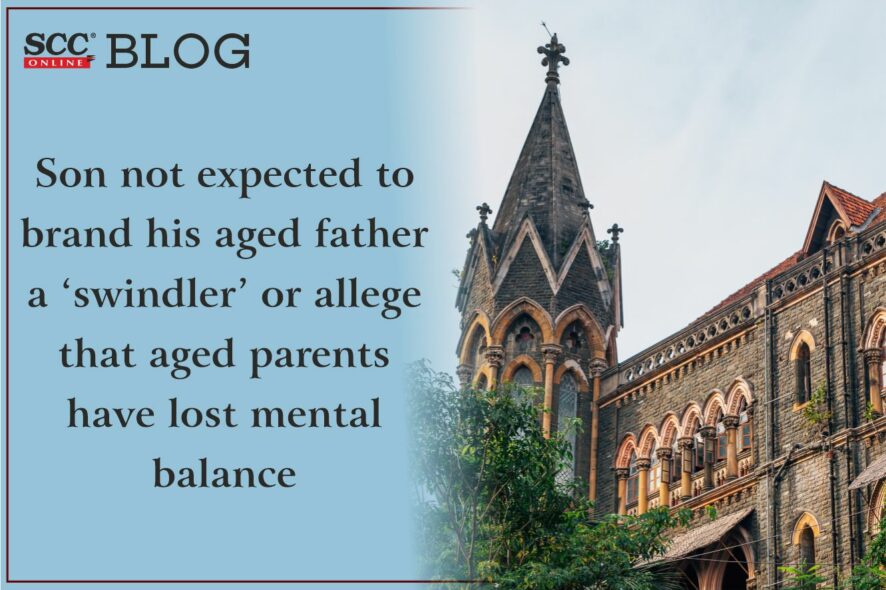Bombay High Court: In a matter wherein, the parents sought eviction of their son, Rohit B. Deo, J., expressed that,
“In the conservative Indian society, a son is not expected to brand his aged father a ‘swindler’ or then allege that the aged parents have lost mental balance.”
The petitioners were the son and daughter-in-law of respondents 2 and 3 and assailed the order rendered by the Tribunal constituted under Section 7 of the Maintenance and Welfare of Parents and Senior Citizens Act, 2007 whereby the petitioners were directed to vacate the self-acquired residential house of the respondents 2 and 3.
Petitioners’ submission was that the Act does not envisage a remedy of eviction, and the Tribunal committed a jurisdiction error in virtually treating the application under Section 5 of the Act as a suit for eviction.
Respondents contended that they had constructed a residential house from self-earning and that petitioner 1 illegally and forcibly took possession of part of the said house and was conducting himself in a manner as would pose a serious threat to the safety and security of respondents 2 and 3.
Further, the respondents submitted that if the petitioners vacate the portion illegally occupied, the said portion can be let out and the rental income would enable the respondents 2 and 3 to better maintain themselves.
Significantly, respondents 2 and 3 accused their son and daughter-in-law of physical assault and further prevented the well-wishers and other sons of respondents 2 ad 3 from entering the residential house.
On finding the real possibility of the safety and security of the aged petitioners being jeopardized, Tribunal directed eviction by the order impugned.
Analysis, Law and Decision
High Court expressed that the safety and security of the respondents 2 and 3 shall be in jeopardy unless the petitioners are evicted.
The Bench stated that the emotional and physical well-being of the aged respondents 2 and 3 could not be ensured unless the petitioners vacate the self-acquired residential house of respondent 2.
Supreme Court considered the scheme of the Act in Dr Ashwini Kumar v. Union of India, 2019 ALL SCR 155, wherein several directions were issued to make the provisions of the Act more effective and to ensure that the constitutional goal which the beneficial legislation seeks to achieve is enthused with more vigor.
High Court held that the eviction order was absolutely necessary in order to ensure the physical and emotional health and safety of the parents. [Namdeo v. Geeta, 2022 SCC OnLine Bom 914, decided on 4-4-2022]
Advocates before the Court:
Mr. Lubesh Meshram, Advocate with Mr. Sourabh Singha, Advocate for Petitioners.
Mr. N. R. Rode, AGP for Respondent 1/State.
Mr. P. S. Wathore, Advocate for Respondents 2 and 3.







